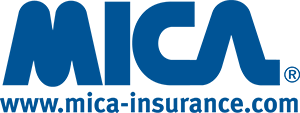Patients, patients’ families, physicians, other clinicians and healthcare facilities can file complaints arising from concerns about the care rendered by contacting the physician’s or other healthcare practitioner’s respective licensing board. Once a complaint is received, the licensing board is statutorily obligated to investigate and adjudicate the matter.
Licensing boards have the legal authority to access the patient’s medical record and evaluate the clinician’s care and treatment of the patient. During the investigative process, a consultant for the licensing board will review the case to determine if there was any deviation from the standard of care. The physician or other licensed healthcare clinician is often given an opportunity to respond to specific questions regarding the findings of the consultant. After the investigation is complete, the licensing board will determine if the specific circumstances of the complaint warrant disciplinary action against the licensee.
It is important that physicians and other licensed healthcare practitioners take seriously any request for information from their licensing board. This provides a chance to proffer the clinician’s side of the story. In drafting a response letter, the goal should be to present a clear picture of the events and confirm the appearance of a caring, thorough professional. Careful consideration should be given to how the response is worded. Here are some key strategies to consider when writing a response letter to your licensing board.
First and foremost, respond to the board within the designated time frame.
If the board does not have the clinician’s response, they may make a determination without the benefit of his or her insight into the unique circumstances surrounding the patient’s care. Notify the board and request an extension if you are unable to comply with the established time frame. Educate your office staff regarding the importance of promptly getting any correspondence from the board to the clinician’s attention. Any correspondence to or from the board should be maintained in a separate confidential file and not in the medical record.
Ensure your response is factual and objective.
The letter should be factual and avoid any inaccuracies. Be sure all the facts are correct; a simple misstatement may be viewed as giving false information to the board. Objectively describe the care that was rendered and the patient’s response. Be careful to avoid phrases that seem judgmental or label the patient. For example, avoid using the term “non-compliant.” Instead, describe the patient’s behaviors or actions that lead to this conclusion, such as “the patient missed five appointments in the last six months.”
Include supporting documentation.
Documentation in the patient’s record can be the best evidence in defense of the medical care rendered. Generally, the board will obtain copies of the patient’s medical records early in the review process or request the medical records with your response. However, when preparing a response to the board, it is appropriate to include portions of the record, as well as medical literature, that corroborate the information in your response.
Call your medical professional liability carrier
Contact your medical professional liability carrier to report a complaint to their licensing board. Claim personnel can provide additional information and give you names of attorneys who can assist with the narrative response or represent you at a board disciplinary proceeding.
Consider legal representation.
Legal representation may be beneficial, especially in the face of significant allegations or a negative review by the board’s consultant.
Receiving notice of a complaint from the Board can have a chilling effect on a physician or other healthcare clinician. Taking the time to prepare an honest, factual response can be helpful in bringing about a satisfactory resolution. For more information, MICA policyholders can call 602.808.2137 or 800.352.0402.


